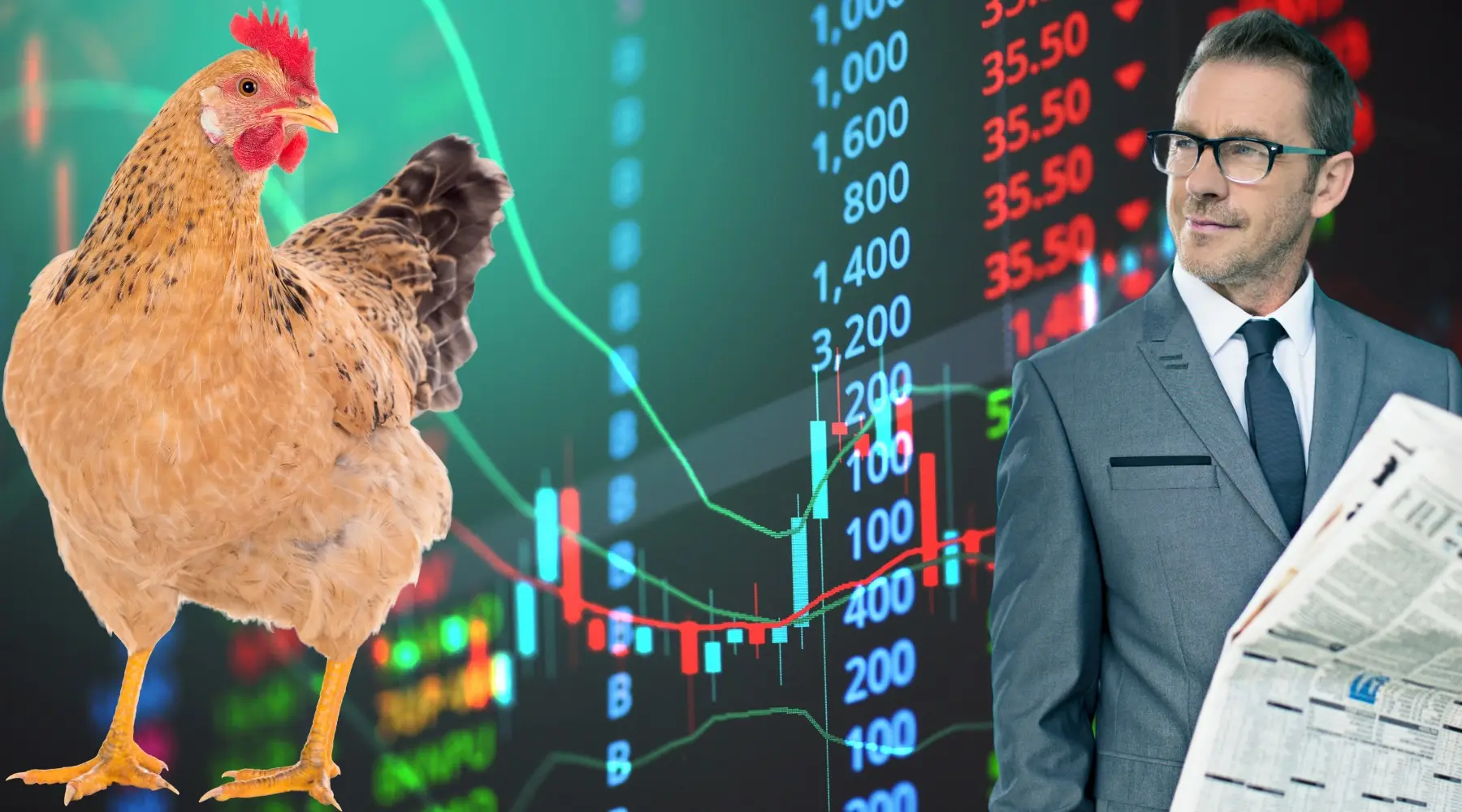The surprise supermarket staple outperforming the stock market

Inflation, trade wars and avian flu mean basic grocery items are beating the stock market.
If you're not an investor, you may not be across the recent stock market slump that's been attributed to US president Donald Trump's ongoing trade war.
But chances are you're very aware of how inflation has impacted the cost of living every time you look at your grocery bill.
According to the most recent consumer price index data, which is used to track inflation, things are now 18.24% more expensive than they were 3 years ago.1
While the Reserve Bank of Australia targets an inflation rate between 2-3% each year, this has not been the case in a post-Covid world.
Inflation means that the value of money reduces over time, so beating inflation is the only way to actually grow your wealth.
One reliable way to easily beat inflation over the long-term has been to invest in the stock market.
And this has proven to be the case even in a high-inflation world.
Before the recent correction, the Australian stock market had enjoyed a prosperous few years.
The S&P/ASX 200 Net Total Return (XNT), which tracks the performance of the top 200 stocks on the Australian stock market, is up 23.5% since March 2022.2
Investing in the ASX 200 over this period means you would have come out ahead of inflation.
But there's a few notable cases where this isn't the case.
Want to start investing?
Find a share trading platform and invest today
A cracking investment?
Anyone who's been to the supermarket recently will know how hard it has been to buy eggs.
A global avian flu outbreak has decimated chicken populations, limiting supply and pushing prices higher than ever.
But how much have prices actually risen?
As mentioned above, the ASX 200 returned 23.5% over the last 3 years.
By comparison, the price of eggs are up 37.6% in the same period. This is based on the latest CPI data from December.1
Anyone who had "invested" in eggs (and yes, it is possible to do so) would have outperformed consumer inflation by a factor of 2.
While the avian flu outbreak accounts for much of the egg price rise, it's a similar story for other supermarket staples.
The price of milk has actually perfectly matched the performance of the ASX 200 over the last 3 years, having also risen 23.5%.
Like eggs, bread has also outperformed the ASX 200, rising 28.13% since March 2022.
What can you do about it?
Unfortunately, most of us aren't in a position to solve the egg crisis or stop Trump's tariffs, but there are things you can do to limit the damage.
In terms of groceries, you could introduce a budget, try to take advantage of supermarket sales and even adjust your purchases based on things like seasonality or other external factors like the avian flu outbreak to save more at the checkout.
As we've established, one reliable way to beat inflation has been to invest in the stock market.
Just investing small amounts can help your net wealth grow over time and it's never been easier or cheaper to get started.
Even if you don't actually invest in stocks, you'll still have quite a bit of exposure to the market through your superannuation.
Unless you're close to retirement, it's generally advised that you don't take any action on your super during market downturns.
While your super may have taken a bit of a hit recently, that's just the nature of the stock market.
Over a longer timeframe, it's expected the stock market will continue to go up, and your super will go up with it.
Sources
Ask a question
